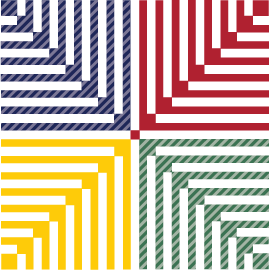Canadian filmmaker and academic Tim Schwab’s feature-length documentary Cinema Palestine explores the life and work of several generations of Palestinian filmmakers. Cinema Palestine presents excerpts from signal works alongside in-depth interviews with directors living in the Middle East, Europe, or North America (including Hany Abu-Assad, Azza el-Hassan, Sobhi Zobaidi, Mai Masri, Tawfik Abu Wael, Annemarie Jacir, and many more).
BPFF spoke with Schwab about the film, which makes its New England Premiere at this year’s festival.


BPFF: How did you come to make this film? What initially inspired you?
TS: In 2004, I collaborated with a former student, Mahmoud Kaabour, on a documentary for the CBC called Being Osama, about the lives of six men named Osama living in the Montréal Arab community in the wake of 9/11. The film was widely screened on television and at festivals, one of which was the Dubai International Film Festival in 2005.
When I attended the festival, the opening night film was Paradise Now by Hany Abu-Assad. I was amazed at the quality of the filmmaking and the story and marveled that any Palestinian director could have made such a film under the conditions of occupation.
While I was at the festival, I had a chance to meet and talk with the cast and crew of Paradise, and to meet Rashid Masharawi, who was also at the festival with his film Waiting. Later that week, we heard the news that Paradise Now had won a Golden Globe for best foreign language film, with the country of origin identified as “Palestine,” and the whole festival was galvanized.
Later that winter, when I was back in Montréal, I met Mohammed Bakri through my friend Majdi El-Omari, who eventually helped produce Cinema Palestine. So meeting these filmmakers and wondering how they managed to do this kind of work led me to wonder if anyone had done any serious writing or curating about the work of Palestinian filmmakers, which led me to Hamid Dabashi, Annemarie Jacir, Michel Khleifi and Gertz, and I just kept going down that road, which led me to here and now.
BPFF: What did you learn about the challenges and potential of Palestinian cinema from making the film?
TS: Well, many things. I learned how complex it is for these filmmakers when, depending on where they live and where their collaborators live, they can’t go to this place, they can’t leave that place, they are not allowed to do this here, they cannot take that piece of equipment there, and so on. I learned about the complexity of identity under which Palestinian artists must function; some of these people live in Israel and are citizens, some live on the West Bank or Jordan and may or may not be able to go to Israel or other countries; many have been educated in the West but are still tied culturally and personally to the Middle East.
And I learned that what I had come to call “Palestinian cinema” is truly transnational in the academic sense, but is also an ultimate auteur cinema in that these films really get made through the determination and vision and enormous work of very dedicated individuals and those who work with them. This is also true too of making films in North America, but by comparison we have so much more support and infrastructure, and they have a so-much-higher wall to climb, beginning with the question, “What color is your travel permit?”
BPFF: What moment or interview stands out in your mind as particularly significant, noteworthy, or poignant?
TS: In terms of a significant moment in the interviews, I should first say that I have conducted many interviews in my life for many reasons, and I was always impressed at how thoughtful and articulate and generous these filmmakers were with their ideas and opinions. And they did them in English, rather than Arabic, which I don’t speak. In fact, Bakri, who speaks fluent Arabic and Hebrew as well as very good English, asked me if we could do it in Arabic. I replied that I spoke reasonably fluent English and fairly bad French, so those were the choices. He replied that it was fine, we could do it in English, it was just that he felt “I am funnier in Arabic”, which I am sure he is.
If I had to pick a favorite moment in the film, it would probably be in that same interview with Bakri when he described how he made Jenin, Jenin in response to the shooting of one of his fellow actors at a checkpoint protest during the siege of Jenin. He says: “Sometimes you have the choice, and sometimes the choice has you…because you are a human being, and you have to react.” I think this in some ways sums up so much of the problem of the presentation of Palestinians in the West, they are always portrayed in terms of politics and protest, the relationship with Israel and the West, so infrequently as human beings trying to make life for themselves and a culture for their people, people really not very different from the rest of us.
I think this is the strength of the art and literature and filmmaking coming out of Palestine and the diaspora, and that is the importance of presenting this work to the public and putting it up for discussion.
BPFF: Given all you have learned from making the film, what do you see as the role or significance of a festival like BPFF?
TS: I just think it is critically important that the public in North America and Europe and other countries that have the power to move international opinion see Palestinian stories and Palestinian people as real people rather than caricatures or cardboard cutouts, or this will never change, and there will never be justice and peace in the Middle East, which there must be sooner or later.
BPFF: As a filmmaker, how do you see the world’s response changing to Palestinian narrative? Does the gradual embracing of Palestinian narrative through film offer some hope?
TS: I am asked this question often, and I don’t know what to say. On one level, I am hopeful in the long run, because I remember as a kid that there were no peace agreements or diplomatic relationships between the Palestinian and Arab states and Israel, and it was thought that there never would be. So we can see in this case and many others that historically, it often takes a very long time for conflicts to be sorted out; France was a bitter enemy of both England and Germany over centuries of conflict, and now they have open borders. So long term, we have to work to break down the binary opposition we are locked into that says one has to support Israel or the Palestinians, but it is not possible to support those on both sides who support peace and justice and progress. So mark me as vaguely hopeful for the future, and somewhat pessimistic for the near term.
BPFF: Is there anything else you would like to add?
TS: I want to sincerely thank all the filmmakers who participated in this project and were so generous with their time and thoughts and hearts. I would also like to thank BPFF and other organizations like this who help to present the Palestinian narrative to audiences who need to hear it, and I hope that one day peace and prosperity will come to all the peoples of the region. And maybe one day a future state of Palestine will become a superpower of international filmmaking, and we can call it “Pollywood.”
–Kate Rouhana for BPFF
Cinema Palestine screens Saturday, October 18, 2014 at the Museum of Fine Arts, Boston at 2:30 pm. Tim Schwab will engage in conversation with the audience following the film. View full schedule and buy tickets here.

